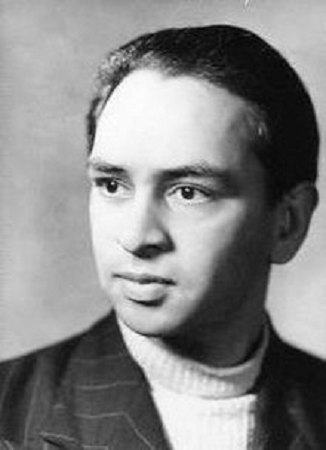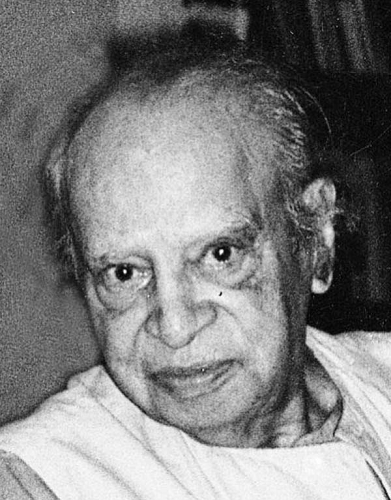Mulk Raj Anand: Biography, About, Born In, Died On

A notable Indian author known for his English-language writings is Mulk Raj Anand. He supports the lower caste in conventional Indian society through his writings. Peshawar, NWFP, British India, was the place of Anand's birth on December 12, 1905. (now situated in Khyber Pakhtunkhwa, Pakistan). Alongside R.K. Narayan, Raja Rao, and Ahmad Ali, he pioneered Indo-Anglian fiction. Realistic fiction made up the bulk of his output. He was also one of the first Indian authors of English-language works to find readers outside of their country and gain international recognition.
Mulk Raj is well recognized for his literary works, which have become modern Indian English literature classics and are renowned worldwide for giving readers a glimpse into the lives of the oppressed and accurately capturing poverty, exploitation, and misery.
He became famous as one of the first writers when he incorporated Punjabi and Hindustani idioms into his distinctive English writing style. He received a lot of appreciation for his iconic protest book Untouchable (1935). After this, he published Coolie (1936) and Two Leaves and a Bud, his other two novels that told the tale of an impoverished Indian culture (1937).
Childhood and Education
Peshawar was Anand Ji's birthplace (now in Pakistan). His mother was Ishwar Kaur, while his father was Lal Chand. In 1924, he graduated from Khalsa College in Amritsar with honors. After that, he relocated to England and was accepted as an undergraduate student at University College London. He also had a job there, working at a restaurant to support himself. He later earned his Ph.D. in philosophy from Cambridge University in 1929. The remaining members of the Bloomsbury Group became his buddies during this time. One of his buddies, Picasso, gave him a painting as well. Additionally, Mulk Raj Ji delivered lectures at the Geneva-based International Committee on Intellectual Cooperation of the League of Nations.
Career
Following a family tragedy caused by the rigidity of India's caste system, Mulk Raj Anand entered the area of literature. In his first article, he addressed the suicide of an aunt whose family had shunned her for dining with a Muslim woman.
In S. Eliot's periodical "Criterion," he began his writing career in England by contributing a few brief reviews. He actively participated in politics in the 1930s and 1940s and frequently spoke at Indian League meetings. His debut book, "Untouchable," which highlights the negative aspects of India's untouchable caste system, was released in 1935. The tale is skillfully written, employing English idioms from Hindi and Punjabi. By capturing the ingenuity of the local dialect, this attempt earned Mr. Anand the reputation of being India's Charles Dickens.
Along with fellow writers Sajjad Zaheer and Ahmed Ali, he created the Progressive Writers' Association in the same year. He started giving lectures on literature and philosophy at the Workers' Educational Association and the London County Council Adult Education Schools in 1939.
He devoted time to the politics of London and India in the 1930s and 1940s. The British Labor Party and the Indian National Congress counted him as an active member. Mulk Raj Ji worked for the BBC London's film division during World War II as a playwright and broadcaster. He began publishing Marg, a publication about fine arts, in 1946. JRD Tata provided the bulk of the magazine's initial funding, and Tata Group later provided additional funding.
Anand Ji made his way back to India in 1947. He spent his time lecturing at numerous universities from 1948 until 1966. At the University of Punjab in the 1960s, he taught literature and fine arts.
Mr. Anand held the position of fine arts chairman at Lalit Kala Akademi from 1965 to 1970. He also took up the role of president of the Lokayata Trust in 1970, following which he established a community and cultural center in Delhi's Hauz Khas neighborhood. He joined the International Progress Organization (IPO) that same year to focus on topics about international cultural self-awareness.
Personal History and Impact
Mulk Raj married communist English actress Kathleen VAR Gelder in London in 1938. Susheila, their daughter, was born to them both. However, their union broke down, and they filed for divorce in 1948. Later in 1950, in Bombay, he wed Shirin Vajibdar, a Persian classical dancer. In 2004, Mr. Anand, who was 98 years old, passed away from pneumonia at Jahangir Hospital in Pune, Maharashtra, India.

Life in Politics
A socialist from the beginning, Mr. Anand. As they critique numerous aspects of India's socioeconomic system and the effects of British colonialism, his novels serve as important social statements and literary gems. Anand felt that writing and politics were inseparably intertwined. He helped draught the Progressive Writers' Association's manifesto as one of the organization's founding members.
Honors and Awards
- Mr. Anand received the International Peace Prize from the World Peace Council in 1953.
- He received the Padma Bhushan honor from the Indian government in 1968 for his outstanding contributions to literature and education.
- He was given the Sahitya Akademi Award in 1971 for his hugely successful book "The Morning Face" (1968).
- Because of his influential work in the novel "Untouchable," he was recognized as India's Charles Dickens.